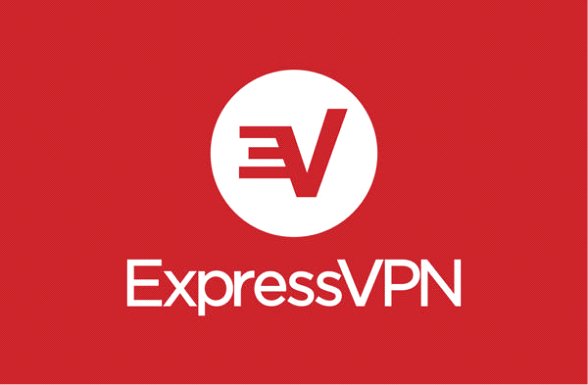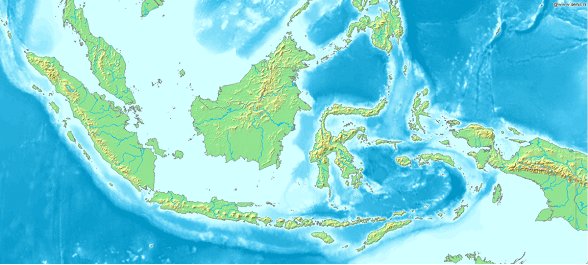Why Indonesia Leads the World in VPN Users

Indonesia is a complex country. Something that is perhaps accentuated by the fact that it is spread across more than 17,000 islands, 6,000 of which are inhabited. 270 million people live in the world's third-largest democracy, which is fast becoming an economic powerhouse and is now Southeast Asia's biggest economy.
Indonesia is also home to the highest percentage of VPN users in the world - 61% as of 2020 (all usage stats taken from GlobalWebIndex reports) of the world's fifth-biggest population are estimated to use VPNs. It's a huge figure: three times as much as most North American and European countries. (Source: globalwebindex.com)
But why are VPNs so popular in Indonesia? The answer is a bit more complex than you might think.
First of all, Southeast Asia is the world's hotspot for VPN usage. While Indonesia is the global leader by a clear distance, VPN penetration in neighboring Thailand (39%), Vietnam (35%) and Malaysia (32%) are also very high. Southeast Asia is only really rivalled by the Middle East when it comes to VPN usage. As you might imagine, the most common reason cited for VPN use in parts of the Middle East is overcoming censorship and other restrictions. Similar concerns are shared in South Asia, but, once again, it's complicated.
Indonesia is well-known as the world's third-largest democracy, and the most populous predominantly Muslim country. But it's not exactly celebrated as a beacon of freedom. Indeed, it has been pointed out by the Brookings Institution that Indonesia has more sharia laws than countries regarded as theocracies, such as Iran. (Source: brookings.edu)
Perhaps more puzzlingly for readers not au fait with Indonesian politics and society: many of these laws are welcomed by the broader population. As Brookings suggests, there has been a kind of coming to terms with Islam in political life not widely seen in the Middle East.
ExpressVPN claims to be "The Best" for Indonesians
So, we are left with this paradox of Indonesia being a broadly conservative country that consistently votes in governments and who openly claim they will restrict certain freedoms - yet are also the leading country for using VPNs.
ExpressVPN markets itself as the number one choice for Indonesia. While such claims are always debatable, and you can follow the link to get more info in an appraisal of ExpressVpn. The company also leads its marketing on unblocking social media and entertainment sites in Indonesia.

It's clear that many in the country want to access these sites. But how restricted is it? The Indonesian authorities tend to take a scatter gunned approach to censorship, and that partly explains the high VPN usage. In fact, it's hard to keep up with the different restrictions and policies.
Netflix, for example, was banned for a few years, but it was unblocked by Telekom (the government-controlled network provider) in July, 2020. Facebook, WhatsApp and Instagram were banned for a few days in 2019 after protests in Jakarta. The latter case is said to have led to a huge surge in VPN usage from 2019 to 2020.
While there can be serious consequences for defying censorship in Indonesia, the country is not China or North Korea - far from it. The government does not have the reach of those two nations when it comes to enforcement.
Geography and logistics also play a role - 6,000 inhabited islands, remember - but you might argue that the government does not have the will, either. Indonesia ranks somewhere in the middle of the world's Democracy Index (as compiled by The Economist), much better than the majority of its neighbors in the Asia-Pacific region. It ranks similar to countries like Mexico and Argentina, and several Eastern European countries.
Indonesia has No Mechanism or Will to Replace Popular Sites
So, a picture is emerging of a country that is (relatively) welcoming of its government's policies, yet more than willing to ignore them. Sound like a paradox?
One theory as to why Indonesia operates in such a contradiction in this sense is that it relies on the apps and websites that it routinely blocks. In places like China, the government will block a popular Western social media site, for example, but it will also replace it with something - that is, of course, controlled by, or at least subservient to, the Chinese Communist Party.
Indonesians are accustomed to abrupt changes in regulation, but the government is characterized by indecision and U-turns. You can see why many Indonesians will simply shrug their shoulders and log on using their VPN as the next edict is handed down.

Another theory raised is that the Indonesian government routinely blocks entertainment sites, which includes videos and pictures of people in the buff, but it isn't as strict when it comes to news censorship.
This gives a different emphasis compared with authoritarian regimes looking to block their populace from seeing real news from within and outside the country. There is a difference, both on how the government acts and how the populace interprets those actions, when the news is censored compared with, say, banning Netflix because you disagree with the vulgarity in The Hangover Part 2.
So, there you have it: Indonesia leads the world in VPN users due to part theory and part fact. In truth, we haven't even scratched the surface as to the social, political, logistical and economic reasons Indonesians choose to use VPNs.
That said, the above is a snapshot of a country full of contradictions. It's a country which is only covered by 53.7% Internet penetration, yet it still manages to get 170 million people online. This is complicated and unique, and tells us much about why VPN usage is set to continue to grow globally.
Most popular articles
- Which Processor is Better: Intel or AMD? - Explained
- How to Prevent Ransomware in 2018 - 10 Steps
- 5 Best Anti Ransomware Software Free
- How to Fix: Computer / Network Infected with Ransomware (10 Steps)
- How to Fix: Your Computer is Infected, Call This Number (Scam)
- Scammed by Informatico Experts? Here's What to Do
- Scammed by Smart PC Experts? Here's What to Do
- Scammed by Right PC Experts? Here's What to Do
- Scammed by PC / Web Network Experts? Here's What to Do
- How to Fix: Windows Update Won't Update
- Explained: Do I need a VPN? Are VPNs Safe for Online Banking?
- Explained: VPN vs Proxy; What's the Difference?
- Explained: Difference Between VPN Server and VPN (Service)
- Forgot Password? How to: Reset Any Password: Windows Vista, 7, 8, 10
- How to: Use a Firewall to Block Full Screen Ads on Android
- Explained: Absolute Best way to Limit Data on Android
- Explained: Difference Between Dark Web, Deep Net, Darknet and More
- Explained: If I Reset Windows 10 will it Remove Malware?

My name is Dennis Faas and I am a senior systems administrator and IT technical analyst specializing in cyber crimes (sextortion / blackmail / tech support scams) with over 30 years experience; I also run this website! If you need technical assistance , I can help. Click here to email me now; optionally, you can review my resume here. You can also read how I can fix your computer over the Internet (also includes user reviews).
We are BBB Accredited

We are BBB accredited (A+ rating), celebrating 21 years of excellence! Click to view our rating on the BBB.

